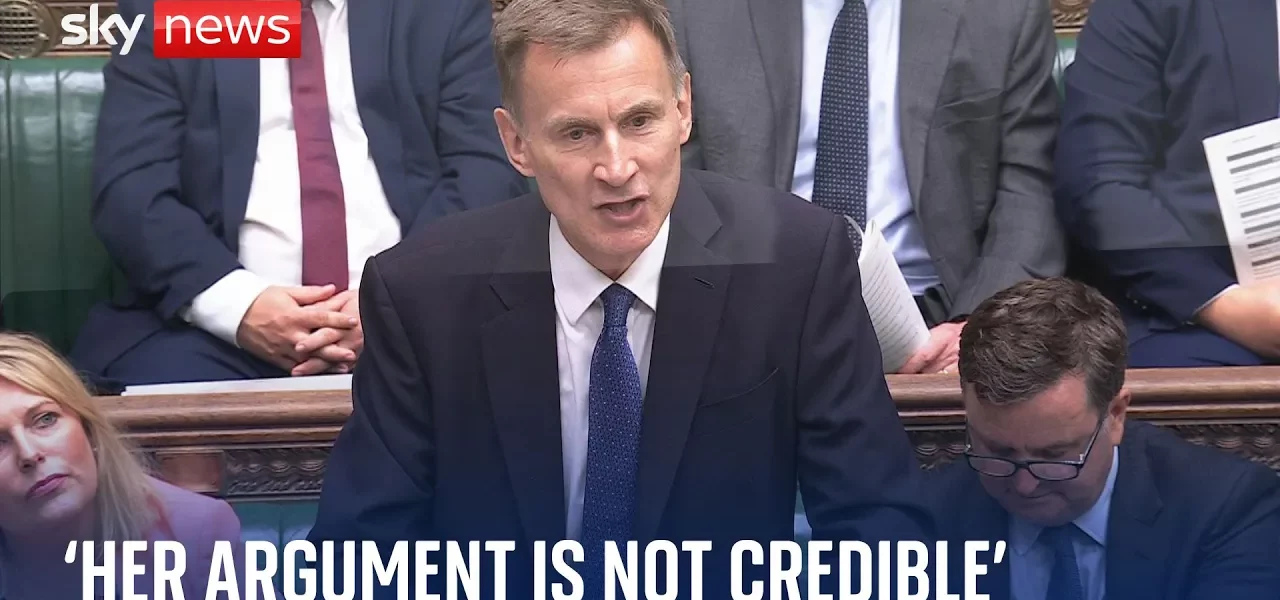Political Analysis of Public Finances in the UK

This article delves into the recent political discourse surrounding the state of public finances in the UK, critically evaluating the claims made by government officials and the implications for the economy.
Introduction
The ongoing discussion about the state of public finances in the UK has become a contentious topic among politicians, economists, and the public. Recently, statements made by government officials have raised questions about the accuracy of financial assessments and the political motivations behind them. This article aims to dissect these claims, explore the context in which they were made, and assess their credibility based on independent analyses and historical data.
The Claims of Financial Discrepancies
Recent statements from government officials suggest a significant and sudden shortfall in public finances. The narrative posits that a £20 billion black hole has emerged in a very short timeframe, leading to questions about the credibility of these assertions.
Context of Financial Reporting
According to Paul Johnson of the Institute for Fiscal Studies (IFS), the state of public finances was evident prior to the election. This sentiment indicates that the current government’s claims may not hold water, given the existing audits conducted by the Office for Budget Responsibility (OBR) just weeks before the election.
Access to Financial Information
It is essential to consider that the Chancellor had privileged access to the Treasury’s permanent secretary during this period. This means that she could have gathered necessary information regarding public finances, raising the question of why these revelations are surfacing only now.
- Privileged access to financial data
- Recent audits by the OBR
- Timing of fiscal announcements
Political Implications of Financial Claims
The framing of public finances as a political issue rather than purely economic raises eyebrows. Critics argue that the current government is using these claims to deflect accountability from previous administrations.
Historical Economic Context
The assertion that the current government has inherited the worst economic circumstances since World War II is challenged by various economic metrics. For instance, inflation rates and unemployment figures have significantly improved in recent years.
- Inflation is currently at 2%, much lower than in 2010.
- Unemployment is nearly half of what it was a decade ago.
- The UK is the fastest-growing G7 economy this year.
Expert Opinions on Economic Conditions
Experts from institutions such as the International Monetary Fund (IMF) and the IFS argue that the current economic situation is manageable and not reflective of dire conditions. This contradicts the narrative being presented by the government.
The Role of Civil Servants and Accountability
There is a significant debate about the role of civil servants in providing accurate financial estimates and the implications of the Chancellor’s claims that these estimates are incorrect. This raises concerns about accountability and trust in public service.
Evaluating the Accuracy of Estimates
The estimates provided by civil servants are legally required and must align with the best forecasts available. Discrepancies between these estimates and the Chancellor’s statements lead to questions about who is right: the politically neutral civil servants or the political Chancellor?
Calls for Transparency
If the Chancellor’s claims hold merit, there is a logical call for an investigation into the civil servants responsible for these estimates. However, given the historical context and expert evaluations, this seems unlikely to occur.
Conclusion
The ongoing debate about the state of public finances in the UK reflects deeper political motivations rather than objective economic analysis. As the government attempts to navigate these claims, it must focus on transparency and accountability to maintain public trust. For those following these discussions, it is crucial to critically evaluate the information presented and consider the broader implications for the UK economy. Engaging in informed discourse can help clarify these issues further. For more insights on economic policies and their impacts, check out our related articles on fiscal responsibility and economic growth.
“`




